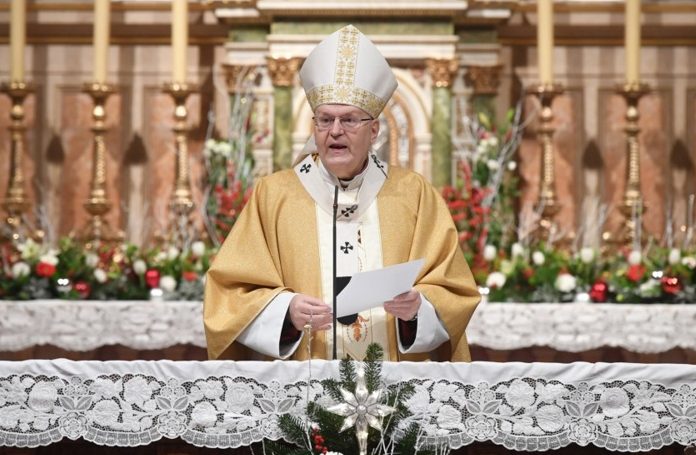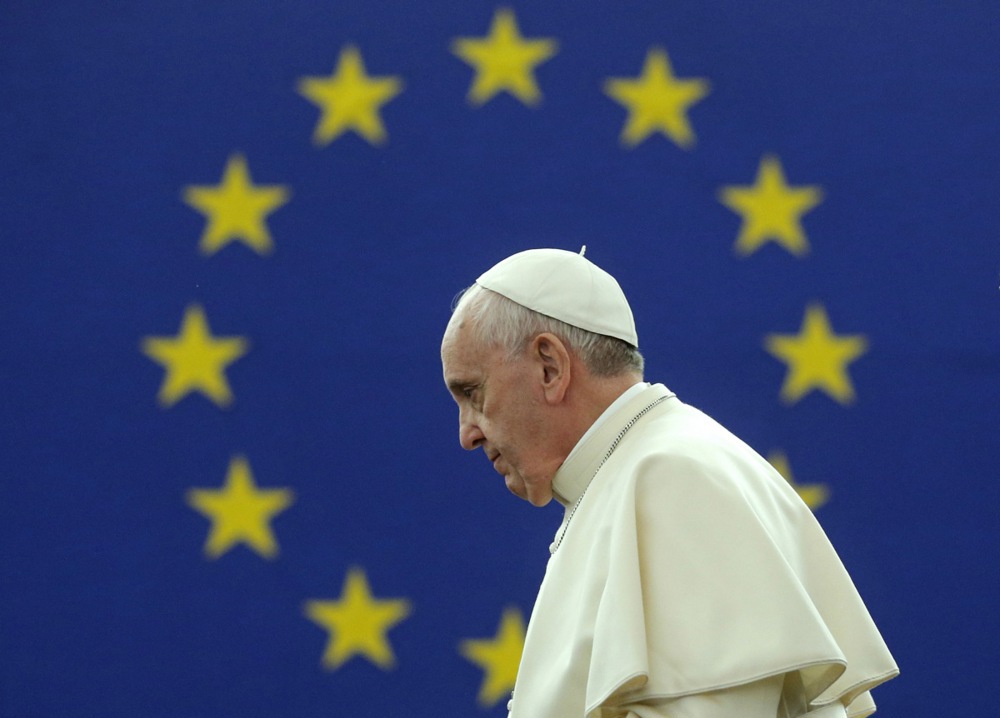When trying to understand the political position of the Catholic Church, there are two methods.
One, just read the press release. For example, earlier this month Catholic prelates in Rome released a statement warning voters to beware of the “nationalistic temptation” of Euroscepticism in June’s European Parliament elections.
Okay, easy enough. The prelates are taking the EU-enthusiast stand. Understood.
Or one can admit that the ancient Vatican ways are never entirely gone, not even from press releases.
Read the release and then ask, which prelates released the statement? Which refused to sign? Is it a warning from all bishops, or just some bishops?
It is Vatican, it is never simple.
Look at the two prelates who signed the statement, framed as a letter to Catholic voters. They were Cardinal Matteo Zuppi, president of the Italian Bishops Conference and archbishop of Bologna, and Bishop Mariano Crociata, bishop of Latina and president of the Commission for the European Bishops’ Conference (COMECE).
Which would look like a pretty heavy euro-endorsement except when, if you are a Vatican regular, you note that no other bishop conferences were involved in drafting the letter.
The Council for the European Bishops Conferences (CCEE) was not included, even though it comprises the presidents of 33 bishops’ conferences in Europe and six other members from churches with one bishop.
So, can the letter be interpreted as the dominant interpretation of the European Bishops? Or is it only a local initiative to get European attention?
It could be worth knowing. When the two prelates signed the letter, they told Catholic voters not to isolate themselves. “A European soul is needed.”
“Some want to make you believe that by isolating yourself, you would be better off, when in fact, any of your countries, even large ones, would inevitably be reduced to the proverbial earthenware pot among iron pots.”
Which was a two-prelate push to support immigration, garnished in Baroque style.
One has to ask if the other bishops, the ones from the 33 bishops’ conferences, are as keen to support immigration. Might they retaliate later with another statement? One waits for the rustle of red silk to find out.
Does any of this matter?
It certainly does in the Italian realm, where the statement is meant to have influence. Step back and look at the role of the church in Italian politics.
After fascism, the Italian state was reconstituted with a powerful Catholic party, Christian Democracy. For decades, Christian Democracy was the first Italian party.
Italians did not vote for the Catholic party just because they were Catholic and because the Popes backed them. Catholics’ credibility came from the fact that they had been among the first opponents of fascism, and the members of the Catholic party at one point even rejected to participate in the works of the Fascist Parliament.
The problem came in the early 1990s, when a corruption scandal in Italian politics called Tangentopoli wiped out traditional parties, including the Christian Democrats.
New parties arose, and members of the Christian Democracy joined these or were part of varying political formations.
For instance, the current Italian Democratic Party, considered centre-left, is made up of former members of the Christian Democrats as well as members of the old Left parties. One of the candidates for the European MP position in this round of elections is Marco Tarquinio, former editor-in-chief of the Italian Bishops’ Conference’s newspaper Avvenire.
Following this political upheaval, the Italian Bishops’ Conference, at the time led by Cardinal Camillo Ruini, decided not to support a Catholic party but rather values and themes promoted within the various parties.
The code word was that there was no longer a Catholic party but Catholics in politics.
Between the 1990s and 2000s, most of the Italian Bishops Conference’s political impact focused on non-negotiable values, with intense debates on abortion, euthanasia, and in vitro fertilization.
Pope Francis, however, brought a new approach that included the countering of poverty, and the care for migrants, as well as the non-negotiable values.
The result was these original values fell to one side, and the Catholics in Italian politics became increasingly marginalized. There were attempts to create new platforms of Catholic culture in the early 2010s amid an economic-institutional emergency that led to the government of the economist Mario Monti.
However, the Monti government was considered to be the last government with self-proclaimed Catholics among its ministers. In other cases, the Catholics in politics barely showed their Catholic affiliation.
Which now leaves Italy in a particular situation. Fratelli d’Italia, the current ruling party, has adopted the old platform of non-negotiable values, the ones largely abandoned by the Pope. Prime Minister Giorgia Meloni has a record of fighting LGBT rights and surrogacy in a way no longer done by the Vatican.
Meloni in fighting mode, and in a roaring voice: “I am Giorgia, I am a woman, I am a mother, I am Italian, I am a Christian, and you can’t take that away from me.”
In other words, Catholic parties are isolated while new, sometimes populist, parties have taken over their traditional values platform with roaring clear values.
Meanwhile, the two prelates with the letter to Catholic voters go on about how we need “shared motivations, common ideals, appreciated and cultivated values. Economic conveniences are not enough, since in the long run, the reasons for being together must be perceived as the only ones capable of overcoming tensions and conflicts that economic interests bring with them in their physiological confrontation.”
Which is the kind of impenetrable prose Prime Minister Meloni would never utter on a political platform. She and her party will get votes in the coming EU elections, and few voters will bother with the Baroque euro-enthusiasts.





What do Catholic bishops think about the European elections?